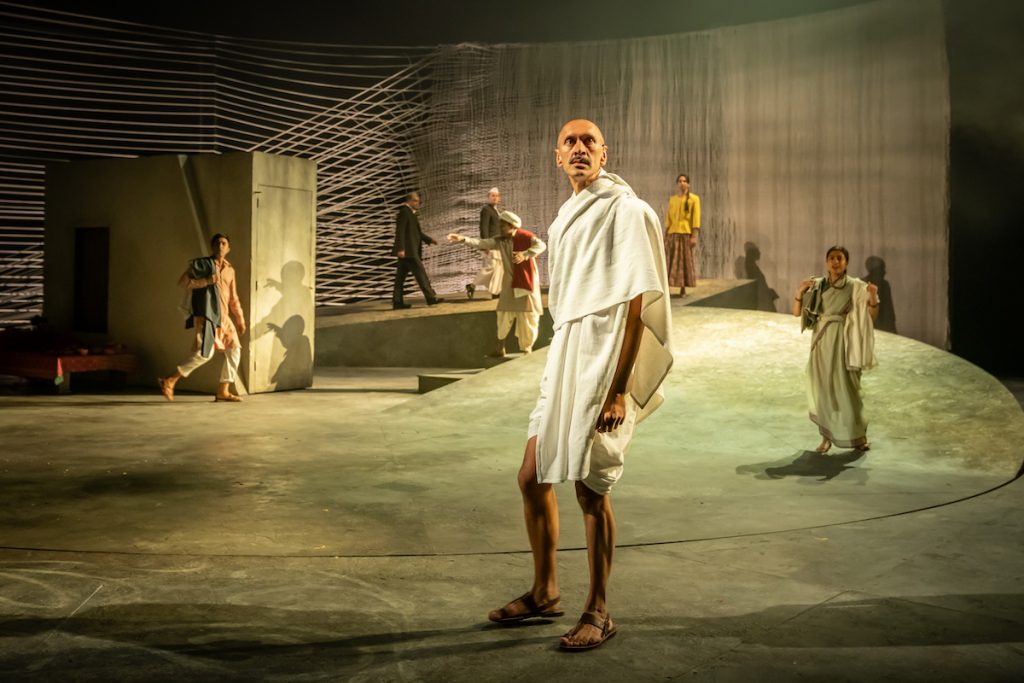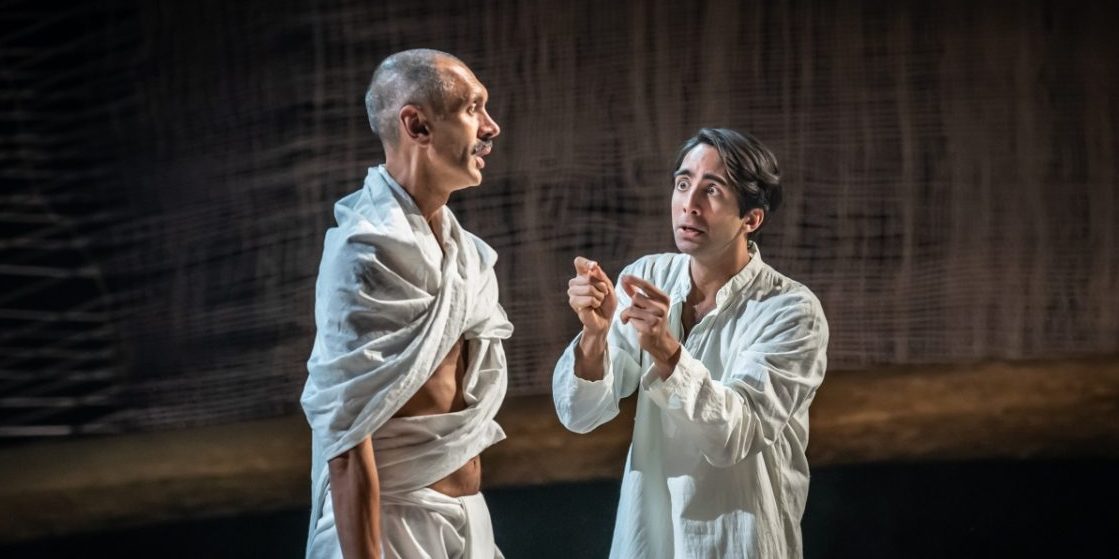On 30 January 1948, Mahatma Gandhi, 78, was assassinated by Nathuram Godse, aged 38. In this historical drama, Anupama Chandrasekhar offers the assassin a platform to explain why he, a Brahmin Hindu, was ready to pay the ultimate price for his conviction that, had Gandhi lived, the future of an independent India would have been severely compromised.
Nathuram Godse is superbly performed by Shubham Saraf – with amazing energy and humour. He is on stage throughout the performance, carrying the audience with him through an intriguing personal and political journey. The historical backdrop to his story is the turbulent and transitional period that led to India’s independence.
Wearing a shirt stained with blood, Nathuram Godse addresses the audience: “What are you staring at? Have you never seen a murderer up close before?”
No apologies, no regrets, and certainly no fourth wall between him and the audience. The other characters all address each other. Some scenes are akin to sliding images partly mute and some with sound – merely there to help illustrate the assassin’s journey through memory lane, to the point of the fatal act. His parents, distraught at the death of their three infant sons, believing that their male line was cursed, decided to bring up their fourth son as a daughter. To ward off the curse, infant Godse had his nose pierced and was made to wear a nose ring befitting a daughter.
Discovering his male identity corresponds with increased political activity. Godse, a Gandhi supporter is gradually disillusioned with Gandhi’s nonviolent resistance, which he considers to be appeasement. He soon concludes that in the interest of an independent India, he must kill Gandhi, the Father of the nation, in order to save India from falling into Muslim hands.
There is a gradual build-up of intimacy between the audience and the assassin. His female childhood friend, Vimala, is impressively acted by Dinita Gohil. She has the charisma and grace to bring her character to the forefront of the historical and personal collage that the assassin unfolds before the audience. She is in many ways his conscience, the voice Godse does not want to hear. She directly addresses the audience, the court of ‘public opinion’.
Some may leave thinking Godse did not deserve the noose and others may wonder whether India today would have been very different, had this Hindu nationalist not murdered Gandhi when he did.

Throughout the unfolding story that we are made to witness, the audience encounters various leaders within the party and outside it and snippets of the relationship between the religious Brahmin couple and their son, Nathuram.
Most characters, including Paul Bazely’s Gandhi, Marc Elliot’s Nehru, and Irvin Iqbal’s Jinnah are very thinly drawn and seem to be there to stitch together something of the historical backdrop. Occasionally, it does not work and dilutes the dramatic effect of the narrative. But overall, it is a fascinating story that grips your attention through most of the performance.
The simple yet effective set designed by Rajha Shakiry is static and semi-abstract of spun yarn, conjuring cotton weave.
An impressive journey, well worth the venture.

